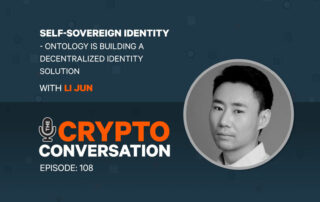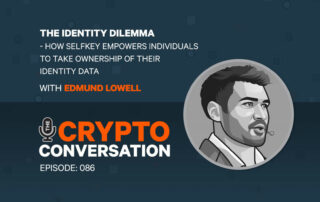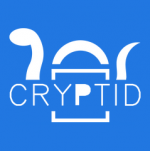Avoteo Reaches Strategic Partnership With VeriDoc To Implement Onchain Signature
Avoteo aims to bring enhanced transparency and security to its crowdfunding platform by integrating VeriDoc into its funding processes.
Self-Sovereign – Ontology is building a decentralized identity solution
Li Jun is the founder of Ontology, a decentralized system that protects data integrity and security. After launching its Mainnet in June 2018, Ontology has continued to press forward, building a key partnership with Daimler.
Selfkey is empowering individuals to take back ownership of their identity data
Edmund Lowell is the CEO of KYC-chain and the Selfkey network - a blockchain startup developing digital identity solutions that empower individuals to take back ownership of their identity data.
Shyft Network creates identity solution in Bermuda
The solution will provide an identity based data exchange framework for residents, visitors, and companies in Bermuda.
Why Microsoft is using Bitcoin to decentralize online identity
Bitcoin was designed to give individuals the power to take control of their wealth. Now Microsoft is experimenting with the Bitcoin blockchain to let users take back control of their personal identity.
The Impact of Blockchain for Government: Insights on Identity, Payments, and Supply Chain
How can blockchain benefit government?
How digital identity solves privacy and compliance problems for business
Businesses around the world are grappling with the consequences of data privacy regulations. Gathering the wrong information, or too much information, can create compliance risk. Digital identity systems promise to remove the compliance burden and open up new opportunities by returning control of personal data to the individual.
Belt & Road initiative a catalyst for new identity technologies
It is hoped that Belt and Road associated nations will be generating 80% of the world’s GDP by 2050. To achieve this goal, however, the 68 countries taking part will have to contend with a range of challenges relating to identity interoperability.
Sphre securing online services with blockchain technology
According to customer identification manager LoginRadius, four out of five people dislike the tedious process of providing personal information for website registration. The Baynard Institute, a web research company based in the UK, reports that 35 percent of online shoppers abandon their shopping carts due account creation requirements, while ITProPortal estimates that we will have over 200 digital accounts to manage by 2020.
The $5 billion opportunity for reinsurers
New research commissioned by PwC highlights the extent to which blockchain could reduce the processing time and cost of placement, claims settlement and key processes such as compliance checks, e.g. sanctions (other compliance checks noted for wholesale insurance include AML/KYC). The research also showed that blockchain solutions can provide a better view of identity and risk. And given the amount of data flowing between client, broker, reinsurer and outsource service providers, all of which requires multiple data entry and reconciliation, the transformational potential within reinsurance is even greater.
Identity protection suite WISeID 6 uses a blockchain for ID storage and validation
[WISeID](https://www.wiseid.com) is a personal security application for smartphones that gives users control over their personal information. “Only the user determines which identification attributes are shared with social media, credit cards, merchant sites etc,” the company claims.
Financial Inclusion, Digital Identity and the White House
Just to mop up the final discussions at the White House FinTech summit, there was a fourth panel on financial inclusion.
The inhumanity of humans and the importance of identity
We had an all-day meeting on Friday about Digital Identity, at the United Nations. There are almost two billion people born with no identity. There is no record of their birth. There is no proof of their existence. As a result, these people can disappear without a trace. There is no evidence of their disappearance because there is no evidence of their existence. Many of those who disappear are girls, sold into sexual slavery. Many others are victims. Victims of war. Victims of politics. Victims of human traffickers. Victims of the inhumanity of humans to humans.
ID2020, held at the United Nations, features ‘lots and lots of Blockchain’
During the inaugural ID2020 summit, held at the UN headquarters in New York on Friday, representatives from over 50 technology businesses discussed the world's Identity problems, including representatives from at least half dozen blockchain-centered companies. The purpose of the annual event is to make sure that every human being has access to identity services, even if they have no state-issued identification. “One fifth of the world's population is without legal identity” the ID2020 website states. "Without legal identification people are invisible to society and vulnerable to trafficking, prostitution, and child abuse."
How do I know it’s the digital you?
We had a fascinating chat about digital identities at the Innovate Finance Global Summit today. It was a private roundtable with members of government, central banks, the banking and Fintech community and commentators/observers. Listening to the dialogue going to and fro, I realised that this is one nut that’s too tough to crack. Here’s the lowdown.
Cryptid open source identification system uses the blockchain to revolutionize ID
New open source identification system uses Factom and the blockchain to replace datacenters and puts a modern spin on identity systems of all sizes.













